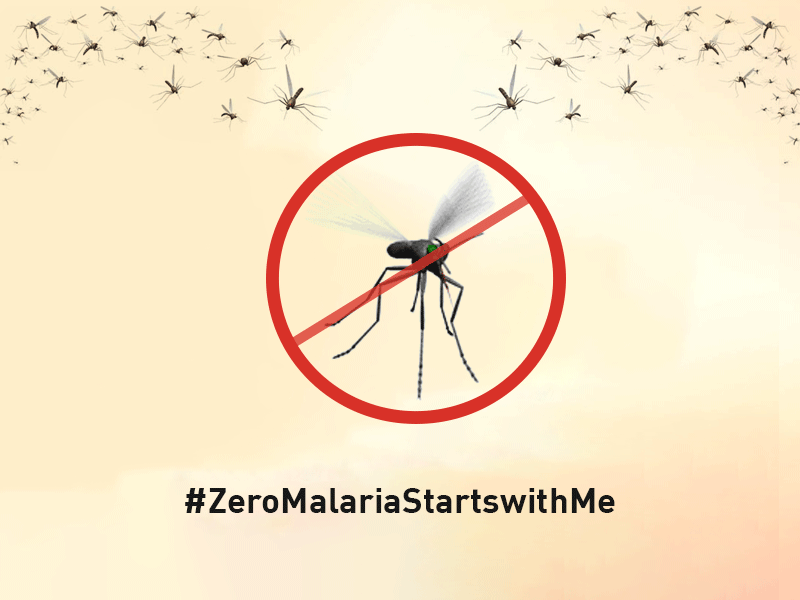World Malaria Day 2020: Preventive Measures to Beat Malaria
Malaria is a mosquito-borne infectious disease caused by parasitic protozoans, which affects humans and other animals. The life-threatening disease is transmitted by female Anopheles mosquitoes. Every year, deadly diseases affect approximately 210 million people. It has been studied that between 2000 to 2014, the number of malaria-related deaths declined by 40% throughout the world in an estimated count from 743 000 to 446 000. Though malaria cases have seen a decline last year in India, the disease is still a reason for serious concern. World Malaria Day is commemorated every year on April 25th with an aim to give people a chance to promote or learn about the efforts made to prevent malaria.
The theme of this Malaria Day 2020 is #ZeroMalariaStartswithMe, which aims to draw the attention to continue the need for investing in and committing to the fight against malaria. Several campaigns are run on this day campaign with an objective to keep malaria listed high on every sphere. Campaigns are run throughout the world to empower the communities to gain knowledge about malaria prevention and care. On this World Malaria Day 2020, we focus on sharing some important information about this disease to help you stay protected.
Symptoms of Malaria
The following signs and symptoms are an indication that a person may be suffering from malaria:
- Fever,
- Tiredness,
- Vomiting,
- Headaches
- Muscle pain and fatigue
In severe cases, malaria may lead to yellow skin, seizures, coma, or sometimes death. If malaria is not properly treated, it may return after a few months, however, the symptoms may be mild.
Know More about Malaria
Malaria is an acute febrile illness and the symptoms usually appear 10–15 days after the infective mosquito bites you. The symptoms include fever, headache, and chills. Children suffering from malaria develop symptoms such as severe anemia, respiratory distress or cerebral malaria. There are more than 400 different species of Anopheles mosquito and around 30 are malaria vectors. The species of mosquito, the intensity of the transmission of disease totally depends on the factors such as vector, human host, and environment.
Preventive Measures of Malaria
If you want to prevent spreading malaria, you need to follow a few effective ways of malaria prevention such as using insecticide-treated mosquito nets and indoor residual spraying. Using a mosquito net will also protect you from the risk of malaria. On the other hand, Indoor Residual Spraying (IRS) with insecticides is also a powerful way to rapidly reduce malaria transmission. Indoor spraying is a very effective way to protect the population for the entire malaria season.
Make sure there is no stagnant water nearby to prevent the breeding of mosquitoes. You can also use antimalarial medicines to stay protected from malaria. Malaria can be prevented by taking chemoprophylaxis, which can suppress the blood stage of malaria infections.
Ways to Avoid Mosquito Bites
There are many other things that you can do in order to stay protected from mosquitoes bite and these are mentioned below:
- Make sure to stay somewhere that has effective air conditioning and screening on doors and windows.
- Close the doors and windows properly
- Clean the areas that have stagnant water to prevent mosquito breeding
- Try to sleep under an intact mosquito net as this will keep you protected from malaria
- Use insect repellent on your skin. The most effective repellents are available in sprays, roll-ons, sticks, and creams.
Click to Know: 5 Places In Your Home That Need Vacuum Cleaning More Often
The Bottom Line
Malaria is a life-threatening, mosquito-borne disease that is caused when the female mosquito bites and infects the human body. It is not completely possible to avoid mosquito bites, but by some simple change in your lifestyle and by following the above-mentioned preventive measures, you can remain protected from this deadly disease. So, this World Malaria Day come together to fight against the deadly disease and complete the WHO Global Technical Strategy. The strategy is about reducing malaria cases by at least 90% by 2030 and even reduce malaria mortality rates by at least 90% by 2030. It is important that every society, political leaders, and even the common people should take ownership and efforts to get to zero malaria.





